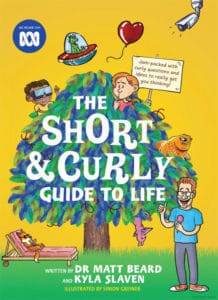
Want your kids to make good decisions? Here’s what they need to learn
Opinion + AnalysisHealth + Wellbeing
BY Matthew Beard 12 DEC 2018
Ask just about any parent what they want for their children and they’ll give you roughly the same answers: we want our kids to be happy, healthy and – perhaps most importantly – good.
For many parents, the goal is to raise children who are better than they are, contribute positively to the world around them, challenge cruelty, injustice and ignorance in the world and make a positive difference in other people’s lives.
Basically, what they’re wanting is that their kids grow up to be ethical people. So, if that’s what so many of us want, it’s worth understanding exactly what ethics is and how we might light the ethical spark in the next generation.
Ethics is a branch of philosophy – it asks questions about the nature of goodness, what makes something right and wrong, and what makes life worth living. As a branch of philosophy, it also leaves no stone unturned. It interrogates any and every claim about what’s right, what’s wrong and what’s ‘normal’.
Whenever we make a choice, we change the world in some small way. Before us are a whole bunch of different possible worlds – it’s up to us to decide which one we’ll turn into reality. Ethics helps us make sure we’re choosing the best of those possible worlds, but it takes practice to do it well.
That means if we’re going to help our kids be ethical people, we need to model ethical thinking in our homes and classrooms, on sports fields and video games and wherever kids are making decisions.
But how do we do it? Here are a few tried and true techniques the ABC’s Short & Curly team have used over the last few years.
1. Don’t be afraid to say ‘I don’t know’
It can be scary to say “I don’t know” – especially when we’re having a conversation with kids. As adults, we’re supposed to have all the answers, right? The problem is, sometimes we don’t. And neither do the young people we’re talking to.
The more we pretend we know it all, the more self-conscious others feel about engaging us in a real conversation, or worse – disagreeing with us! Philosophers use discussions and debate as a team activity – we use disagreement and criticism as a way to work together to find out what’s true.
What’s more, our beliefs about how the world works are often conditioned on what we’ve learned or been told is normal. What we know about fairness, honesty or whatever the topic is might not be the final answer – it could be conditioned by norms and beliefs we’ve been conditioned to believe, even if they don’t hold up to close analysis.
2. Be imaginative
Martha Nussbaum, one of the world’s pre-eminent philosophers, says “you can’t really change the heart without telling a story.” We’re narrative creatures – we’ve always used parables, fables, literature and film as ways of understanding the world around us.
Philosophers have tested their ideas through thought experiments and hypotheticals throughout time. They’re super weird, but they make for great road-trip fodder or dinner table debates.
Ethical reflection demands imagination. It requires us to be able to understand experiences we haven’t lived through and to empathise with people who might be radically different to us.
The next time you’re reading a book or watching a movie with your young one, that’s a moment for reflection. Did those characters do the right thing? How do you think that person felt? Would it have been OK if they’d broken that promise?
3. Don’t shut down a question
Some of our favourite one liners are actually really good ways of undermining ethical conversations. “Everybody does it”, “because I said so” and “you’ll understand when you’re older” are good examples. They rely on authority, tradition or experience as ways to cut off what might be a more productive conversation.
Sometimes, there’s not time for an ethical discussion, but rather than shutting it off with a one-liner, make a commitment to talk about it in more detail later, when you’ve got more time to explain yourself.
4. Question your assumptions
Our minds love telling stories – and we hate plot holes. If we don’t have the full story, we’ll often fill in the gaps with assumptions or inferences that don’t capture the full picture. Ethical conversations work best when they start by questioning what we think we know for sure. Are we starting our discussion on a good foundation?
5. Be curious and research
As well as checking our assumptions, ethics requires us to be curious and informed about the world around us. As much as many philosophers would beg to differ, we can’t understand the world from an armchair.
We need to do some research and uncover relevant facts. Bonus – while you’re doing some research together, you might be able to work together to understand the difference between a fact and an opinion, spot dodgy sources or filter out fake news.
6. Listen to and test your emotional responses
Our emotions are an important part of the way we make judgements, but they can sometimes run wild and lead us astray. Just because we find something disgusting, offensive or hurtful, doesn’t make it wrong. And just because we find something pleasant, fun or funny doesn’t mean it’s OK.
Add “yuck” and “yum” to your list of banned arguments – just because something makes you feel squeamish doesn’t make it bad. Listen to your emotions, but get curious about them – they need to be tested like everything else.
One final note: these tips won’t guarantee a kid won’t do the wrong thing sometimes – like all of us. But it will help you have a shared language for communicating, in a meaningful way, why what they did was wrong.
We all make judgements – it’s part of who we are – ethics helps us build the skills and character to ensure we’re making those judgements in ways that are alive to the world around us and the people within it. And like any skill, it’s easier to master if you start young.
The Short & Curly Guide to Life

What makes something good or bad?
Why are things the way they are? How come it’s so hard to work out the right thing to do? The Short & Curly Guide to Life is an imaginative look at some of life’s biggest and trickiest questions. Figuring out what’s right is way more fun than you think!
Short & Curly Guide to Life is on sale at book stores around Australia and via major online retailers. You can also tune into the ABC Radio podcast, Short & Curly, here.
Matt Beard is the resident philosopher on the ABC Podcast Short & Curly, and the author of The Short & Curly Guide to Life (Penguin Random House). Find him on Twitter @matthewtbeard
Ethics in your inbox.
Get the latest inspiration, intelligence, events & more.
By signing up you agree to our privacy policy
You might be interested in…
Opinion + Analysis
Health + Wellbeing
When you hire a philosopher as your ethicist, you are getting a unicorn
Opinion + Analysis
Health + Wellbeing, Relationships, Society + Culture
Look at this: the power of women taking nude selfies
Opinion + Analysis
Health + Wellbeing
Ethics from the couch: 5 shows to binge on
Opinion + Analysis
Business + Leadership, Health + Wellbeing, Relationships




